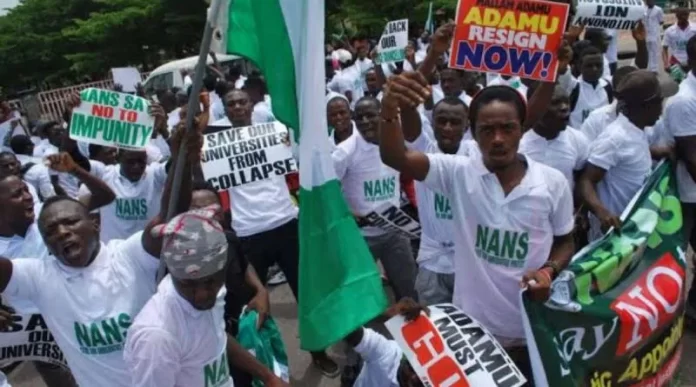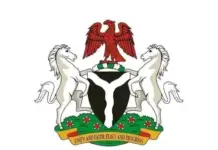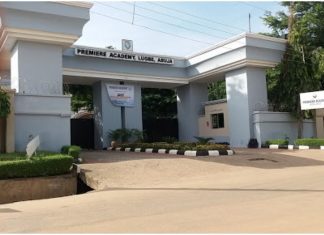I recently heard, among many other things, that funding education has become a crushing burden that the government alone can no longer bear around the world. To this group, it is suggested that a private public-private partnership be formed, as well as support from good-hearted individuals, come to the rescue. During this time, I’ve also read an argument that our educational system, like all educational systems, is flawed. They went on to say that the educational system in the United States is flawed, and that if there is no flaw in any system, there will be no improvement. They came to the conclusion that what we call a flaw is a challenge, and that this is the foundation of development. To the rest, our educational system is not flawed; it is still one of the most sound and well-regarded systems in the world.
Regardless of what you hear or read in the news, this piece believes that the Nigerian education sector has had a difficult and bumpy ride. Even the country’s democratic practice, contrary to popular belief, has not been able to alleviate the pangs of challenges faced by Nigerians in the sector.
While it is not surprising that there are more non-learners in school than out of school in Nigeria – especially given that the world agrees that schooling does not always lead to learning – the ongoing one-month warning strike by the Academic Staff Union of Universities (ASUU) to ensure the government stops reneging on agreements with the union has made it clear that the nation’s public unrest is growing.
Apart from the fact that this is the second strike in less than two years, and the fact that the system continues to stifle the ambitions and aspirations of our youths, who will provide the country’s future leadership needs, there are a number of factors that characterize the current events as a troubling reality.
The strike occurred just days after President Muhammadu Buhari, while receiving members of the Nigeria Inter-Religious Council (NIREC) led by the Co-Chairs, the Sultan of Sokoto, Alhaji Muhammad Sa’ad Abubakar, and the President of the Christian Association of Nigeria, Revd. (Dr.) Samson Olasupo Ayokunle, in Abuja, promised that the Federal Government would keep promises made to the Academic Staff Union of Universities.
The second comes from Professor Emmanuel Osodeke, President of the Academic Staff Union of Universities (ASUU), who, in a reported interview with Channels Television, not only contradicted but also proved the above pledge to be untrue. He’religiously’ explained how the FG has gained a reputation for breaking promises.
“They have been promising us for the past nine years or so,” he says, “but once the strike is over, they relapse.” While noting that his colleagues are tired of promises that aren’t kept, he went on to say that what they want are actions, noting that the union has sacrificed for the country’s educational system, and concluding that ASUU will not back down on the current strike because the Federal Government has a reputation for not keeping its promises.
If the time-honored aphorism that considers education as the bedrock of development is anything to go by, and if the age-old belief that, with sound educational institutions, a country is as good as made -as the institutions will turn out all-rounded manpower to continue with the development of the society driven by well-thought out ideas, policies, programs, and projects remains a valid argument, then we all have reasons not only to be optimistic but also to be pessimistic
The first lays out the dilemma posed by the government’s underfunding of public universities, which, as a result, obstructs lecturers from conducting scholarly research, truncates academic calendars with strike actions, and laces Nigerian universities with dilapidated and overstretched learning facilities, with the universities producing graduates devoid of linkage with the manpower demand by the nation’s industrial sect.
The second challenge stems from the first, but it focuses more specifically on the school authorities’ rash demand for fees of varying amounts—a development that is financially squeezing the innocent students and their parents.
Read also: BRT Driver Arrested In Death Of Oluwabamise Ayanwola
This practice’s conundrum and threat indicate a significantly higher risk. And unless the government commits resources to addressing the root of the problem, the potential consequences could be far worse than other issues currently plaguing the education sector.
One fact that the Federal Government failed to remember is that when human beings develop a higher order of thinking through sound education, society gains an advantage in being able to anticipate emerging threats, as they gain the ability to conceptualize rather than just perceiving. However, if they are unable to acquire or deny the need, they will gain the ability to conceptualize an imaginary threat, and if a group of people is persuaded to conceptualize this imaginary threat, the fear response will be activated as powerfully as if the real threat were present.
This fact helps to explain some of the recent fears and insecurity that have engulfed the country. It’s also a sign of a government that hasn’t accepted the fact that the traditional progressive solution to a problem involving citizens’ lack of participation in civic and democratic processes is to re-focus on education, which is a highly effective strategy for addressing many societal ills, including insecurity.
To avoid all of this, governments at all levels must unlearn their progressive non-recognition of the right to education as a human right, despite their membership in a number of international conventions, including the International Covenant on Economic, Social, and Cultural Rights, which recognizes the right.
Read also: Breaking: 2023: Kwankwaso, Dalung’s Third Force adopts NNPP
Above all, the Federal Government of Nigeria, led by President Muhammadu Buhari, must remember that, globally, “the relationship between employers and employees is always strained, always headed toward conflict.” It’s an inherent conflict in the system. Unions do not strike on the spur of the moment or to demonstrate their strength. Strikes are seen as costly and disruptive, particularly for workers and their families. Strikes are referred to as a “last resort.” And any government that fails to profitably manage this delicate relationship or develop a cordial relationship with the workers becomes an enemy of not only the workers, but of the open society as a whole, and such a society will sooner or later devolve into chaos.
Join Television Nigerian Whatsapp Now
Join Television Nigerian Facebook Now
Join Television Nigerian Twitter Now
Join Television Nigerian YouTUbe Now





